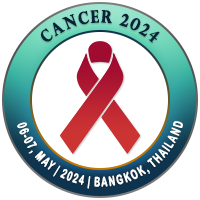
Chih-Che Lin
Chang Gung University, TaiwanTitle: Living donor liver transplantation for Hepatocellular Carcinoma Research
Abstract
Liver transplantation (LT) for hepatocellular carcinoma (HCC) at Kaohsiung Chang Gung Memorial Hospital manly relies on live donor LT (LDLT). Primary LDLT provides the best long-term survival for HCC within UCSF criteria; achieving over 85% of 5-year survival rate. Salvage LDLT with similar surgical mortality rate of <3% also emerges the best results for recurrence HCC after curative resection, compared with local regional therapy or re-resection.
Selection criteria will not take into account only by the morphologic size/number of tumors but also by their biology. The criteria are divided into modifiable image morphology, alpha fetoprotein (AFP), and PET scan with SUV and unmodifiable unfavorable pathology. Downstaging therapy is necessary for HCC patients beyond modifiable criteria and yielded the comparable results. In contrast, unfavorable tumor pathology should be excluded by the findings of pre-transplant core biopsy/resection. Pre-transplant, non invasive PET scan is a useful modality to predict unfavorable pathology (sensitivity: 75%, specificity: 75%, accuracy: 75%). PET scan has therefore been becoming the mandatory pre-transplant screening in our algorithm. Moreover, complete tumor necrosis in explanted liver predicts almost no recurrence after transplant. Necrotizing therapy is advised if possible before transplant even the tumor status within criteria to minimize the possibility of tumor recurrence.
With the advent of systemic therapy and radiotherapy (proton/radioembolization), we have lauched the pre-transpalnt radiodownstaging and post-transplant adjuvant therapy for high-risk and locally advanced patients. Nowadays, we have enrolled 36 patients with high-risk HCC underwent radio-downstaging. Eighteen patients received Y-90 TARE and 18 patients underwent proton therapy. Twenty-two patients fit UCSF criteria for LDLT and 18 patients have received LDLT. The 2-year recurrence-free survival rate was 70% and the 2-year overall survival was 78%, which significantly improved the survvial, compared with the propensity match cohorts. The short-term outcomes are proming and more patients with longer follow-up are requied.
Biography
Chih-Che Lin completed his MD from Kaohsiung Medical University, Twain in 1995 and PhD from Imperial Collinge London in 2010. He is the vice superintendent of Chang Gung Memorial Hospital, Fong Shan branch. He has over 160 publications. His research interest focuses on liver transplantation, hepatocellular carcinoma.

